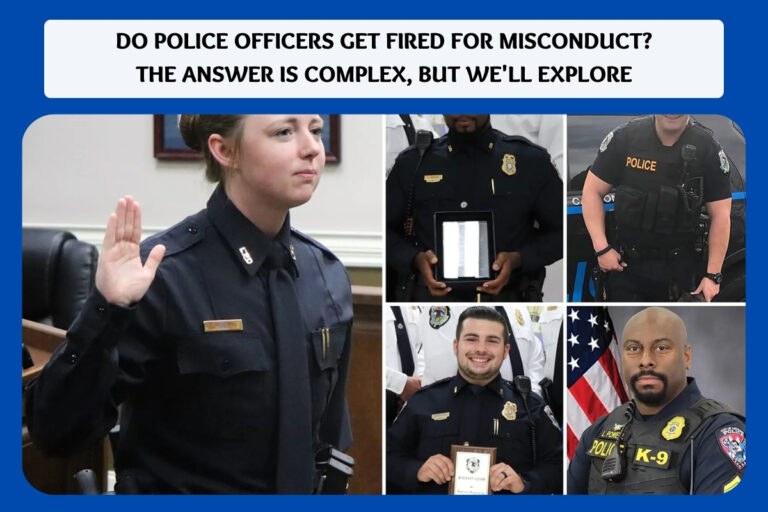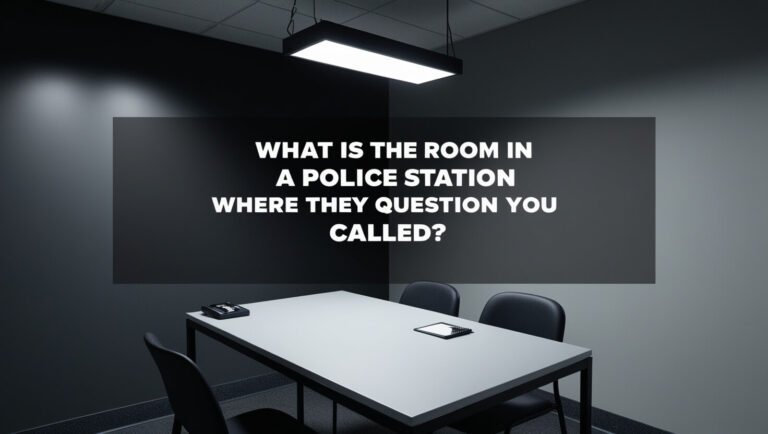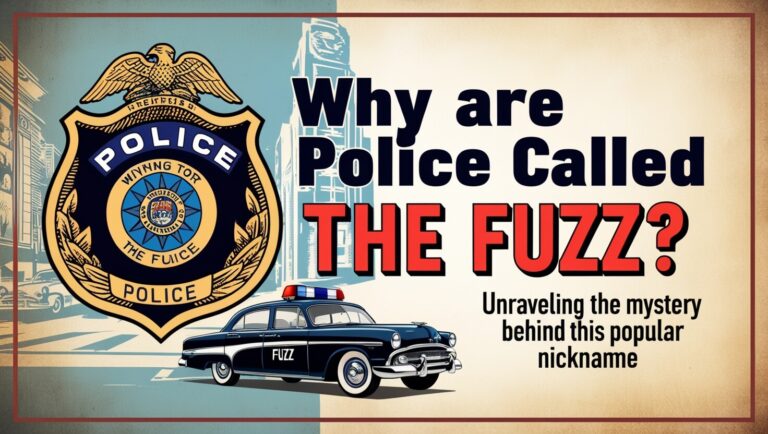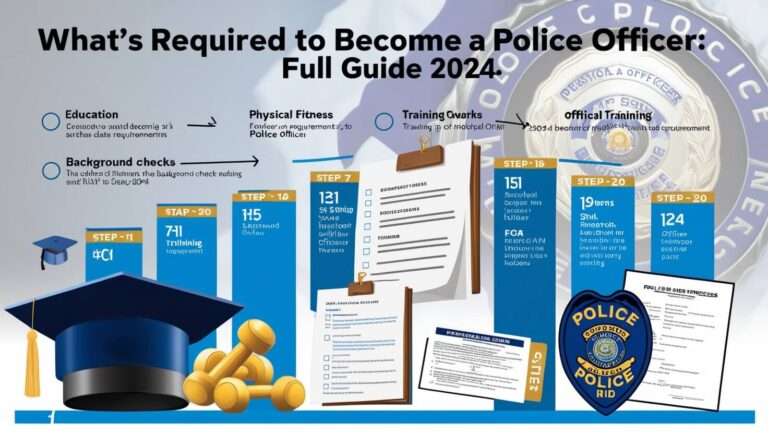What Is Police Discretion? A Comprehensive Guide
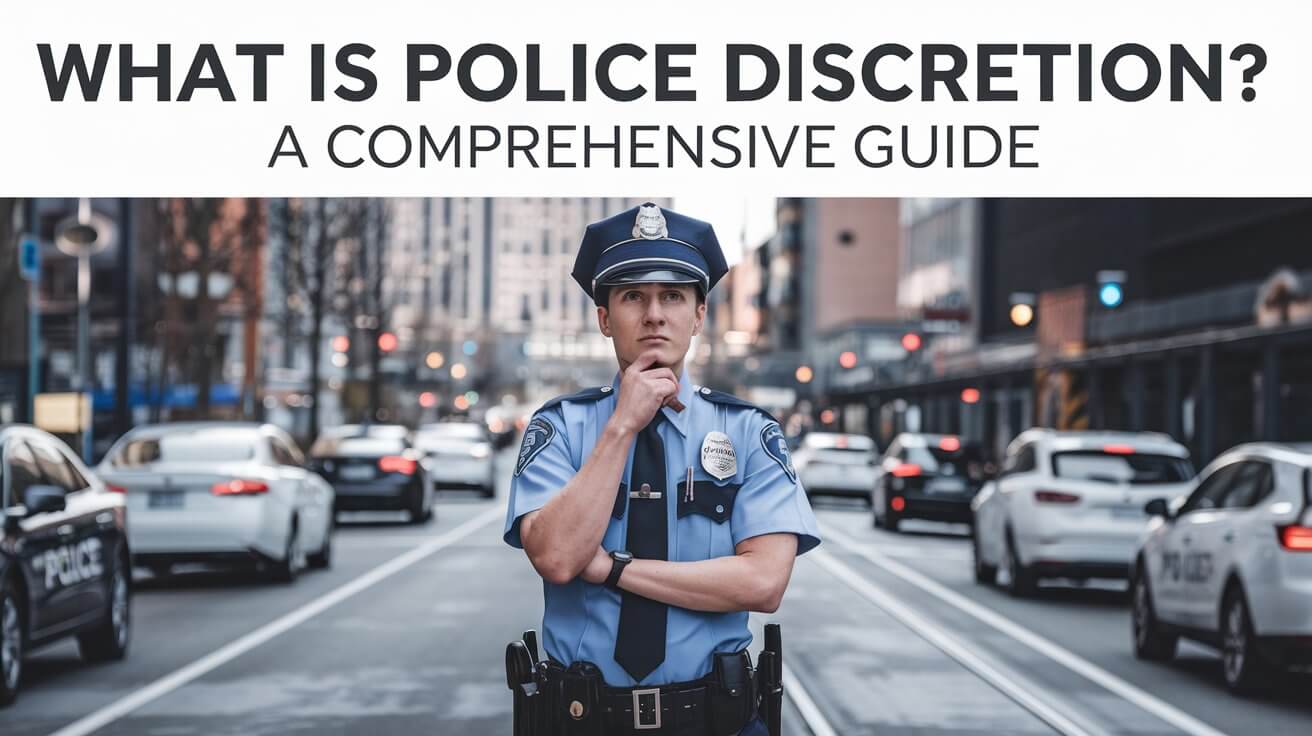
Police discretion is the authority given to law enforcement officers to make decisions based on their judgment in various situations they encounter while on duty. This power allows officers to choose how to handle different scenarios, from minor traffic violations to more serious crimes. In this guide, we’ll explore the ins and outs of police discretion, its importance, and how it impacts law enforcement and communities.
Defining Police Discretion
Police discretion isn’t just a fancy term – it’s a crucial aspect of law enforcement that shapes how officers interact with the public every day. Let’s break it down and see what it’s all about.
The Essence of Discretionary Power in Law Enforcement
At its core, police discretion is about choice. It’s the freedom officers have to decide how to handle situations they face on the job. Think of it as a toolbox – officers can pick which tool (or action) best fits the situation at hand.
This power isn’t unlimited, though. Officers must still follow laws and department policies. But within these boundaries, they can choose how to apply the rules based on the specific circumstances they’re dealing with.
Key Elements of Police Discretion
Police discretion has a few important parts:
- Judgment: Officers use their experience and training to assess situations.
- Flexibility: They can adapt their responses to fit different scenarios.
- Decision-making: Officers choose from various options, like giving a warning or making an arrest.
- Responsibility: With this power comes the duty to use it wisely and fairly.
The Importance of Police Discretion in Law Enforcement
Now that we know what police discretion is, let’s look at why it matters so much in law enforcement.
Flexibility in Decision-Making
Police work isn’t black and white. Each situation officers face is unique, and having the flexibility to respond appropriately is crucial. Discretion allows officers to consider factors like:
- The severity of the offense
- The offender’s attitude and history
- The impact on public safety
- Community norms and expectations
This flexibility helps ensure that the punishment fits the crime and that minor offenses don’t always lead to harsh consequences.
Efficient Resource Allocation
Police departments have limited resources, and discretion helps officers use them wisely. By choosing not to pursue every minor violation, officers can focus on more serious crimes and community needs. This targeted approach can lead to:
- Better use of police time and energy
- Reduced overcrowding in jails and courts
- More effective crime prevention and community service
Adapting to Unique Situations
Every community is different, and what works in one place might not work in another. Police discretion allows officers to adapt their approach based on:
- Local customs and culture
- Specific neighborhood needs
- Changing social norms
This adaptability helps build trust between police and the communities they serve.
How Police Discretion Works in Practice
Let’s look at some real-world examples of how police discretion plays out on the streets.
Traffic Violations and Discretionary Choices
Picture this: An officer pulls over a driver for speeding. The officer has several options:
- Issue a ticket
- Give a verbal warning
- Let the driver go without any action
The choice depends on factors like:
- How fast the driver was going
- The driver’s attitude and driving record
- Road and weather conditions
- Any emergencies the driver might be facing
An officer might choose to give a warning to a polite driver who was only slightly over the speed limit, while issuing a ticket to someone driving recklessly.
Domestic Disputes and Officer Judgment
Domestic calls are often complex and emotionally charged. When responding, officers must use their discretion to:
- Assess the safety of all involved
- Determine if a crime has occurred
- Decide whether to make an arrest or seek alternative solutions
In some cases, officers might choose to separate the parties and provide resources for counseling instead of making an immediate arrest.
Public Intoxication and Discretionary Actions
When dealing with someone who’s drunk in public, officers have several options:
- Arrest the person
- Take them to a detox center
- Call a friend or family member to pick them up
- Allow them to sober up and go home
The choice often depends on the person’s behavior, level of intoxication, and potential risk to themselves or others.
The Scope and Limits of Police Discretionary Power
While police discretion is a powerful tool, it’s not without boundaries. Let’s explore the limits of this authority.
Legal Boundaries of Police Discretion
Officers can’t just do whatever they want. Their discretionary power is limited by:
- Federal and state laws
- Constitutional rights of citizens
- Court decisions that shape legal precedents
For example, an officer can’t choose to search a person’s home without a warrant or probable cause, no matter what their personal judgment might be.
Departmental Policies and Discretionary Guidelines
Police departments often have their own rules that guide how officers use discretion. These policies might cover:
- When to pursue a fleeing suspect
- How to handle domestic violence calls
- Guidelines for using force
These rules help ensure that discretion is used consistently and fairly across the department.
Constitutional Considerations in Exercising Discretion
The U.S. Constitution plays a big role in shaping police discretion. Key amendments that impact police work include:
- The Fourth Amendment: Protects against unreasonable searches and seizures
- The Fifth Amendment: Provides the right against self-incrimination
- The Fourteenth Amendment: Ensures equal protection under the law
Officers must always consider these rights when making discretionary decisions.
Factors Influencing Police Discretion
Many things can affect how officers use their discretionary power. Let’s look at some of the main factors.
Officer Experience and Training
An officer’s background plays a big role in their decision-making. Factors include:
- Years on the job
- Types of training received
- Personal experiences in law enforcement
A rookie officer might handle a situation differently than a 20-year veteran, based on their differing levels of experience and training.
Community Expectations and Norms
Different communities have different expectations of their police force. These local norms can influence how officers use discretion:
- In some areas, minor drug possession might be treated more leniently
- Other communities might expect strict enforcement of all laws
Officers often adjust their approach based on these local expectations.
Situational Factors Affecting Discretionary Decisions
The specific details of each situation also play a role. Officers might consider:
- Time of day
- Location of the incident
- Presence of bystanders or witnesses
- Potential for escalation
For example, an officer might handle a loud party differently at 3 PM versus 3 AM, or in a residential area versus a commercial district.
Pros and Cons of Police Discretion
Like any aspect of law enforcement, police discretion has its upsides and downsides. Let’s take a balanced look at both.
Advantages of Discretionary Power in Policing
- Flexibility: Officers can adapt to unique situations
- Efficiency: Resources can be focused on more serious crimes
- Community relations: Fair use of discretion can build trust
- Humanizing law enforcement: Allows for compassion in minor offenses
- Crime prevention: Officers can address root causes, not just symptoms
Potential Drawbacks and Risks of Discretion
- Inconsistency: Different officers might handle similar situations differently
- Bias: Personal prejudices could influence decisions
- Accountability challenges: Discretionary actions can be hard to review
- Public perception: Misuse of discretion can erode community trust
- Legal issues: Improper use of discretion can lead to lawsuits
Police Discretion and Community Relations
The way officers use their discretionary power can have a big impact on how the public views law enforcement.
Building Trust Through Fair Use of Discretion
When officers use their discretion wisely, it can help build positive relationships with the community. This might look like:
- Giving warnings for minor offenses instead of always issuing tickets
- Taking time to explain decisions to community members
- Using discretion to de-escalate tense situations
These actions show that officers are there to serve and protect, not just enforce laws blindly.
Impact of Discretionary Decisions on Public Perception
On the flip side, poor use of discretion can damage public trust. Examples include:
- Perceived racial bias in traffic stops
- Inconsistent enforcement of laws
- Overly aggressive responses to minor infractions
When community members feel that discretion is being used unfairly, it can lead to tension and mistrust between police and the public.
Accountability and Oversight in Police Discretion
With great power comes great responsibility. Let’s look at how police discretion is kept in check.
Internal Review Processes for Discretionary Actions
Many police departments have systems in place to review how officers use their discretion. This might include:
- Regular performance evaluations
- Review of body camera footage
- Analysis of arrest and citation patterns
These reviews help ensure that officers are using their discretionary power appropriately and consistently.
External Oversight and Legal Challenges to Discretion
Outside of police departments, there are other ways discretionary actions are monitored:
- Civilian review boards
- Department of Justice investigations
- Court challenges to discretionary decisions
These external checks help maintain public trust and ensure that police discretion stays within legal and ethical bounds.
The Future of Police Discretion
As society changes, so does the role of police discretion. Let’s look at some factors shaping its future.
Technological Influences on Discretionary Decision-Making
New technologies are changing how officers use discretion:
- Body cameras provide a record of interactions
- Data analytics help identify patterns in discretionary actions
- Predictive policing tools may influence where and how discretion is applied
These tools can enhance accountability but also raise new questions about privacy and fairness.
Evolving Policies and Training for Effective Discretion
Police departments are adapting their approaches to discretion:
- More emphasis on de-escalation techniques
- Training on implicit bias and cultural sensitivity
- Policies that encourage problem-solving over strict enforcement
These changes aim to help officers use their discretion more effectively and fairly.
Case Studies: Police Discretion in Action
Real-world examples can help us understand how police discretion works. Let’s look at a few notable cases.
Notable Examples of Discretionary Decisions
- The officer who chose to drive a young mother to a job interview instead of ticketing her for a traffic violation
- A department’s decision to focus on treatment rather than arrests for low-level drug offenses
- An officer using discretion to resolve a neighborhood dispute without making arrests
These cases show how discretion can be used to solve problems and build community trust.
Lessons Learned from Controversial Discretionary Actions
Not all uses of discretion turn out well. Some controversial cases include:
- Racial profiling in traffic stops
- Inconsistent enforcement of protest-related activities
- Decisions not to arrest in domestic violence cases
These examples highlight the need for clear guidelines and ongoing training in the use of discretion.
Improving the Exercise of Police Discretion
There’s always room for improvement. Let’s explore some ways to enhance how police discretion is used.
Enhanced Training Programs for Discretionary Skills
Better training can lead to better discretionary decisions. This might include:
- Role-playing exercises for common scenarios
- Courses on ethical decision-making
- Training on community-specific issues and cultural sensitivity
The goal is to give officers the tools they need to use their discretion wisely and fairly.
Implementing Best Practices in Discretionary Decision-Making
Departments can adopt policies that promote good use of discretion:
- Clear guidelines for when discretion can be used
- Reward systems for positive community interactions
- Regular review and update of discretionary policies
These practices can help ensure that discretion is used consistently and in line with community needs.
Conclusion
Police discretion is a key tool in law enforcement. It lets officers handle unique situations and build trust. But it also has risks that need watching. As society changes, we must update how police use discretion. We should balance flexibility with accountability. We should also improve training and rules.
This will help make discretion work better for both police and communities. Learning about police discretion matters for everyone, not just officers. It helps us understand policing better and work towards fairer law enforcement.

